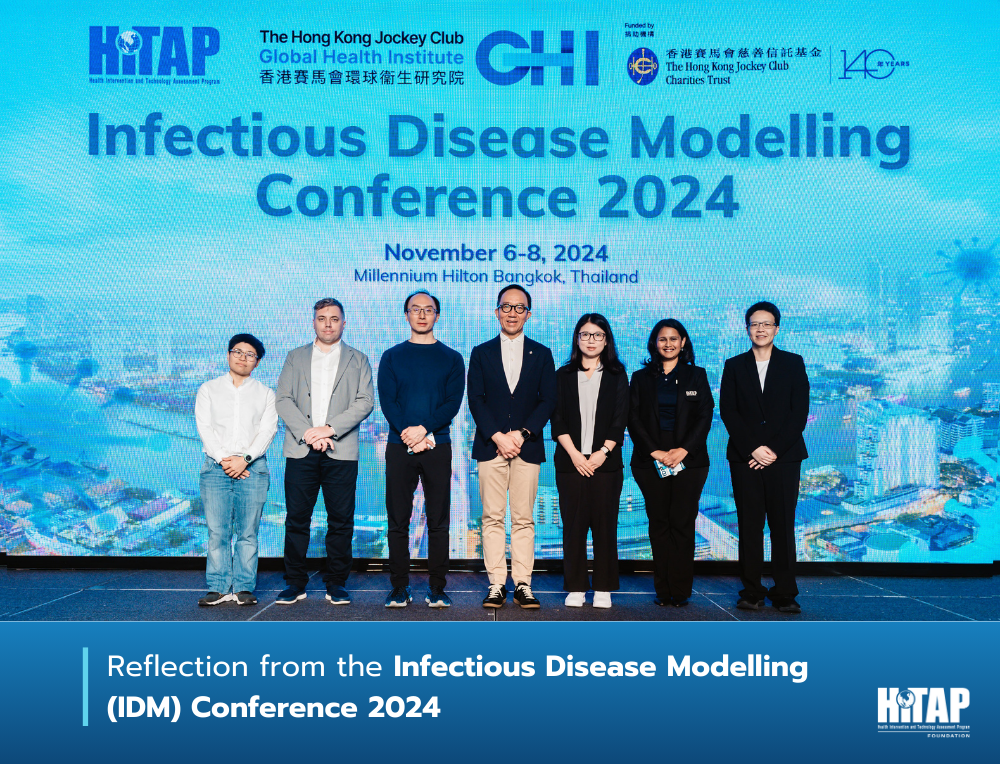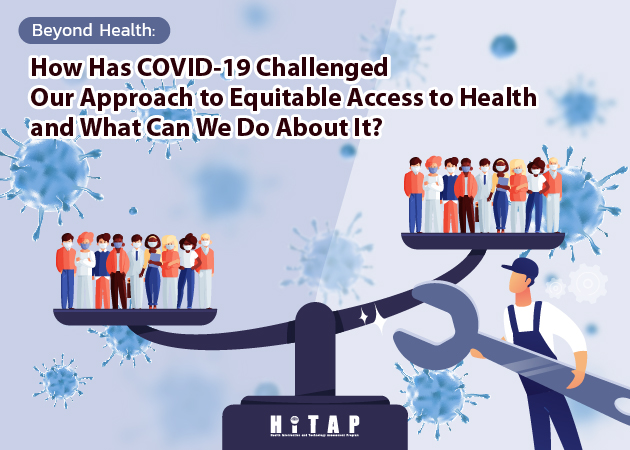Reflection from the Infectious Disease Modelling (IDM) Conference 2024


Every year, the Prince Mahidol Award Conference (PMAC) offers experts in global health a unique platform to share, address, and shape health policies. This year, I had the pleasure of participating in this prestigious conference as an attendee and a rapporteur. Here, based on my experience at PMAC this year, I share highlights of the challenges and lessons learned that may be of interest to the global community and prospective rapporteurs at PMAC.
Since the outbreak, the virus has claimed over 2.8 million lives, excluding excess mortality from other conditions over this time period, affected nearly 1.6 billion students over 190 countries where education delivery was shifted from school to remote learning, reinforced existing inequalities in health and beyond, stagnated economies and pushed millions into poverty. However, COVID-19 also presented us with an opportunity to reconsider the way we work, live, and operate our respective institutions.
Rising to this challenge, PMAC 2021 aimed to effectively harness the knowledge and experience on COVID-19, to give us all a platform to exchange lessons and pave a path forward to not only address on-going challenges but also to prepare for future public health emergencies. Adapting to the situation, all PMAC 2021 sessions and activities were delivered virtually. A variety of sub-themes were discussed including questions such as: (i) What the world has learned from COVID-19, (ii) How we are dealing with COVID-19, (iii) What we should do for the future, and (iv) COVID-19 and the global megatrends.
We Are In This Together, But Not In The Same Way: The Socioeconomic Impact of COVID-19
COVID-19 has highlighted how our existing social and institutional structures have neglected vulnerable groups such as women, migrants, people with disabilities, and communities with fewer resources. One session, titled “The Socioeconomic Impact of COVID-19 from an Equity Perspective – Who is Being Left Behind and Lessons for the Future”, highlighted the socioeconomic impact of COVID-19 among these groups. In particular, the session highlighted that inequity exists at various levels of society due to the lack of planning within the social protection system. Two major contributing factors were identified for the same: (i) the lack of investment in access quality healthcare, basic services, income and job protection in both developed and developing countries and (ii) lack of political will to support a more inclusive approach to tackling COVID-19.
Many examples were shared where these structural obstacles have had serious consequences. Households with lower income were more likely to have aggressive physical behaviour of household members towards their families and depressive symptoms. Women over the age of 25 were more likely than teenagers to have poor physical and mental health, a lower quality of life, and conflicts with their children. Furthermore, the discussion drew on hidden difficulties among migrant communities in several countries in accessing social protections or recovery packages from the government. On the one hand, the pandemic has increased poverty and further added to the existing deprivation. On the other hand, it can also be seen as a new opportunity to drive progress to advance inclusion and equity.
Experts highlighted that it is essential to strengthen our social protection systems by removing financial barriers to accessing quality healthcare, enhancing income security, reaching out to informal workers and protecting income and employment.
Strategic Communication is Critical During Health Emergencies
The pandemic has reminded us of the strong relationships between knowledge, communication, and public behaviour. In a session titled “Communication During Health Crises – Translating Sciences to Policy and Manage the Infodemic”, experts discussed the term “infodemic” to describe the use of misinformation, rumours, downgrading of scientific evidence into opinions which lack credibility, and the resulting impact this may have had in tackling the pandemic.
In the past year and more, researchers have generated a mammoth amount of scientific evidence related to COVID-19 at a speed without parallel in recent memory. Given the novelty of the virus, scientific evidence has been changing rapidly, as more information comes to light. This has required regular updates to the evidence and there have been some challenges in decision-making, as reflected in inconsistent use of evidence in policy and practice. having implications on how the information is consumed and how the enacted policies are perceived and adhered to by the public. Such uncertainty in both scientific evidence and government policies make a perfect brew for infodemics during public health crises. As a result, the COVID-19 infodemic has had a significant impact on the efforts to respond, prevent, and control the spread of the virus by shaping public behaviour, and promoting the adoption of unscientific practices, by instilling mistrust, fear, and uncertainty.
Mechanisms such as having fact-checkers, a monitoring tool to produce a media literacy index, and an assessment of risk in communication systems were some of the suggestions that emerged. For such a system to be operationalised effectively, we need cooperation from stakeholders including journalists, social media providers, researchers, and policymakers to reduce the impacts of transboundary misinformation. At the global level, the World Health Organization (WHO) has also developed a public health competency framework, as well as consulted with experts to encourage the global availability of reliable and accessible health information. Improved understanding of the infodemics and infodynamics is needed in order to develop a new strategy kit for countries.
Personal takeaways
Much like COVID-19, which has transcended many boundaries, the lessons and skills I have gained from my PMAC 2021 experience have journeyed with me from being discussions in a meeting room to my everyday professional life. I had the pleasure of interacting with high-level panellists, who provided a systems-level perspective in analysing the impact of COVID-19. In doing so, I have gained important insights into the complexities of policymaking and the interconnectedness of different issues from different sectors. Such an understanding has already helped me in my work at HITAP in the study on quarantine measures for healthcare workers during COVID-19 and other global health engagements. Rapporteuring for PMAC required coordinating with team members from different countries and organisations. This has not only broadened my professional network but also improved my problem-solving abilities, for example, better coordination which was tested while working with tight deadlines with teams working remotely from different time zones.
Visit https://pmac2021.com/ for recorded webinar sessions and stay tuned for the conference next year.
Acknowledgements: I would like to thank Ms. Aparna Ananthakrishnan and Mr. Sarin KC for their support in writing this piece.